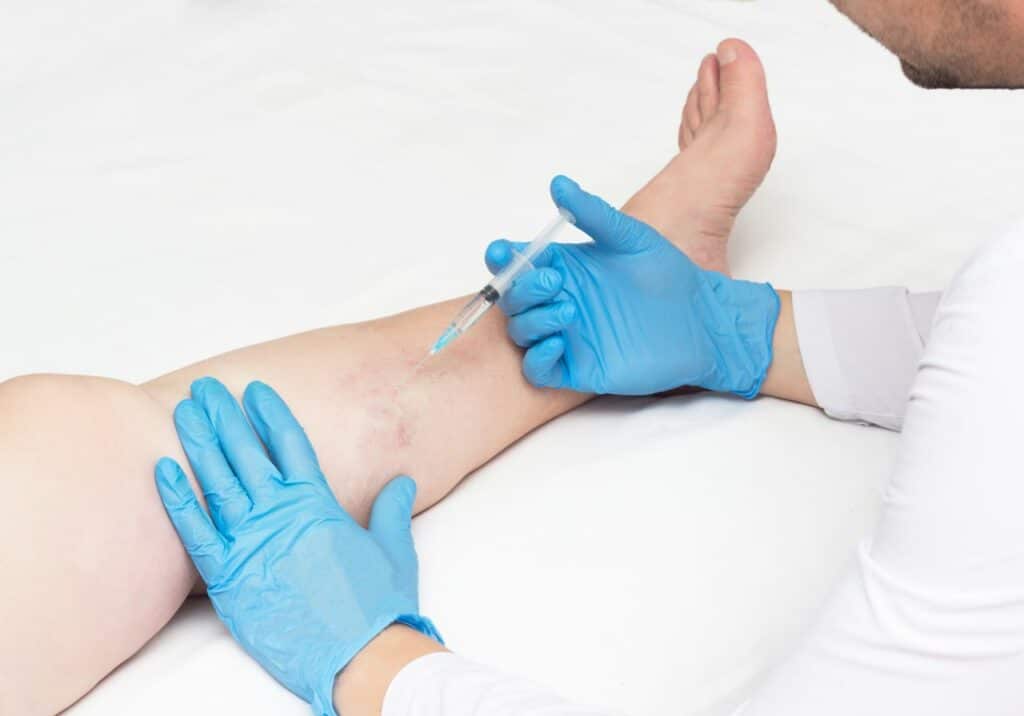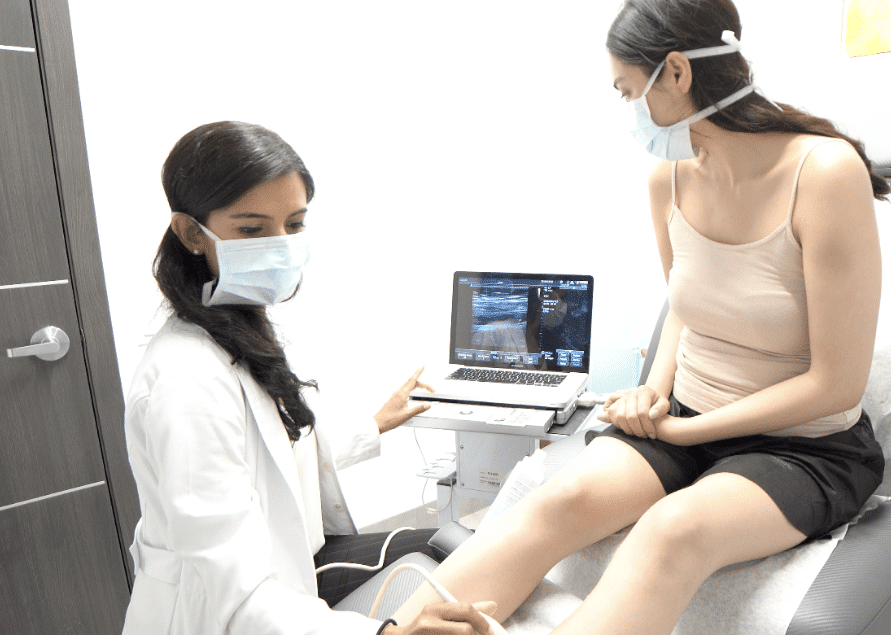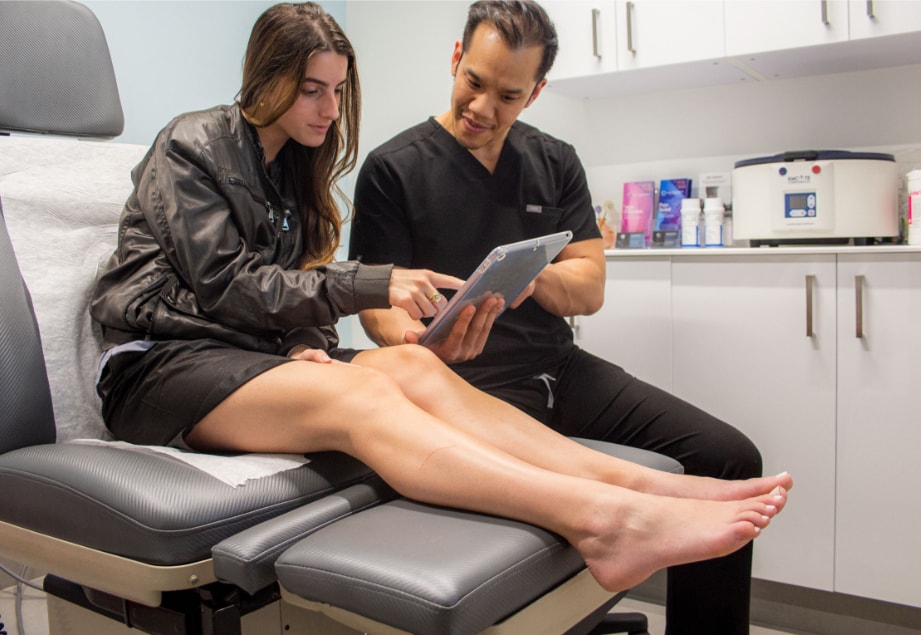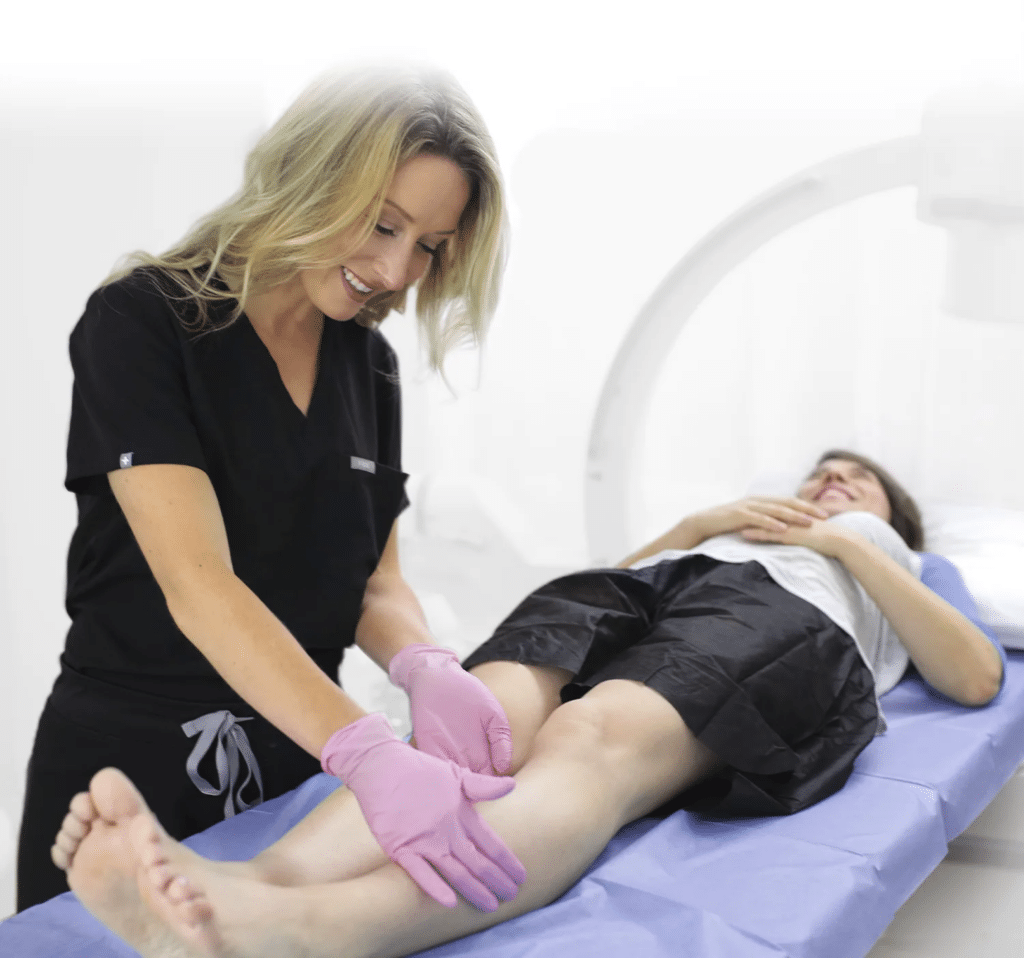Does Pregnancy Cause Spider Veins and Varicose Veins?
Spider veins and varicose veins are both common during and after pregnancy. While the pregnancy itself doesn’t cause them, there are several things that occur while pregnant which contribute to damaged veins. The first is that blood volume doubles during pregnancy in order to supply the fetus. This extra fluid stretches the vein, which makes it harder for the valves inside the veins to close tightly once blood flows through. As a result, blood flows in reverse and collects beneath the faulty valve. This causes the vessel to swell and contort into a varicose vein, or it causes tiny, new blood vessels to branch out from the engorged vein, known as spider veins.
The hormonal fluctuations that accompany pregnancy also increase blood pressure and progesterone, which relaxes the vein walls. These factors can impact the incidence of spider and varicose veins. As the uterus expands, it can press on the pelvic veins, contributing to these veins. If you’re pregnant or have delivered a baby and have vein damage, book an appointment with our renowned vein doctors on Long Island.
Do Sitting or Standing Cause Damaged Veins and Vein Disease?
If you must sit or stand for long periods of time at work, that increases pressure on your veins, especially as you gain the necessary weight to grow a healthy fetus. If you must remain stationary throughout the day, try to incorporate breaks to walk around. Leg muscle contractions help pump blood out of the leg veins.
Put your feet up when possible at work. Elevate your legs above heart level while resting at night to prevent blood from accumulating in your veins. Participate in a daily walk, swim, or other moderate exercise if your doctor approves it.
What Are the Top Varicose Vein Treatments for Pregnant Women?
The best vein treatments for pregnant women on Long Island are typically minimally invasive. They prevent ongoing vein damage and symptoms. Our treatments include:
- Sclerotherapy (Varithena)
- Mechanochemical Ablation (ClariVein)
- Radiofrequency Ablation (ClosureFast)
- Vein Adhesives (VenaSeal)
Are Minimally Invasive Vein Treatments Safe While Pregnant?
In most cases, it is safer to wait until after delivery to treat spider or varicose veins. Minimally invasive vein treatments inject medicines, adhesives, or thermal energy into the vein. While treatments generally remain localized, most doctors wait until after pregnancy for caution.
In cases involving a blood clot or infection, vein specialists determine the safest course of action. It’s essential to consult a vein doctor when new vein damage develops. They can use safe tools during pregnancy to identify any concerns and provide advice for symptom management, such as elevating your legs, sleeping on your side, and avoiding prolonged sitting or standing.
Which Long Island Vein Specialists Treat Pregnancy Veins?
You need an experienced vein specialist to assess and treat defective veins that develop during pregnancy. Our vein experts use diagnostic tools to create a customized plan for your veins. Dr. Thomas Arnold and Dr. Zalekha Shair provide exceptional care at locations across Long Island. Visit Dr. Arnold in Port Jefferson or Dr. Shair in West Islip and Jericho.
When Should I Book a Vein Doctor for Varicose Blood Vessels?
Book a vein doctor as soon as varicose veins or spider veins develop. Detecting underlying issues like Chronic Venous Insufficiency, blood clots, and elevated blood pressure can help prevent further vein damage. Vein specialists can help ensure a healthy pregnancy by identifying issues with safe diagnostic tools. If you’re planning to become pregnant, you can also schedule a preventative consultation to detect any blood clots or malfunctioning veins in advance.





